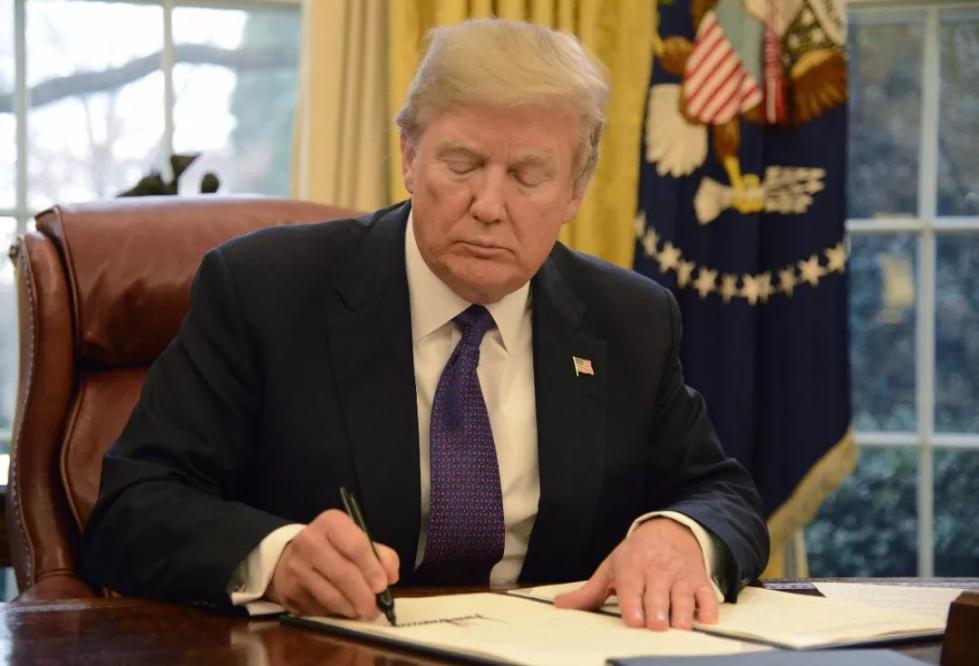
Since Trump took office on January 20, 2025, he has announced a series of tariff policies, including a 25% tariff on all steel and aluminum imports into the United States, a "reciprocal tariff" on trading partners, and a tariff of about 25% on cars imported into the United States. What impact will these tariffs have on the world economy? What challenges might the global economy face? This article will take the reader through each one.
The tax increase policy may lead to the instability of the original supply chain and upset the market balance. As one of the world's largest consumers of steel and aluminum, the United States imposed tariffs on imported steel and aluminum will affect the profit margin of raw material exporting countries, which will promote the rise of relevant product prices. On the one hand, the production cost of domestic enterprises in the United States will rise, on the other hand, foreign export enterprises will face the problem of profit reduction, both of which will increase the difficulty of business operation of enterprises, and then have a chain reaction on the downstream manufacturing industry, resulting in market supply chain instability. In addition, from another level, the increase in the difficulty of business operation will accelerate the speed of market elimination, and for some small and micro enterprises, they may face more severe risks and challenges, resulting in instability in the entire supply market, breaking the original chain balance and destroying the original supply order.
From an inflation and consumer perspective, increasing tariffs will increase the cost of imported goods, which in turn affects the price level for consumers. The starting point of "reciprocal tariffs" may be to reduce inflation and thus promote economic development, but in fact, the tax increase will directly lead to the rise of the price of imported goods, which is not conducive to the fall of inflation, and lead to the reduction of consumers' actual spending power. In addition, due to market psychological factors, the increase of tariffs may add to the market of consumers "buying" psychology, for example, the University of Michigan's monthly consumer survey has shown that 25% of respondents believe that the increase in tariffs is expected to rise in prices, so now may be a "good time" to buy big-ticket goods. This example also reflects from the side that the tariff policy affects the market psychology, which is easy to expand irrational spending, causing the market reaction that rising commodity prices are not conducive to reducing inflation.
The imposition of tariffs may lead to the waste of economic resources and lead to the risk of market structure allocation. Due to the instability of the related industrial chain caused by the imposition of tariffs, this policy may lead to an increase in the vulnerability of the global economic supply chain. On the one hand, some multinational enterprises may re-plan their corporate strategies and change their original industrial layout in some regions, which will cause great changes in the types of industries in these regions and waste the original economic resources. On the other hand, from a deeper level, the change of the original industrial layout of a region will often lead to the reconfiguration of the market structure of the region. In the context of the current economic environment, which is not optimistic, coupled with the irregular factors of Trump's "aggressive" tariff policy, there are huge challenges in the adjustment of the market structure of relevant regions. The risk of economic market structure allocation cannot be ignored.
The imposition of tariffs may affect the global economy and trade, which is not conducive to long-term economic development. First of all, Trump's tariff policy is a means of trade protection for other countries in the world, on the one hand, it is only based on the domestic economic situation of the United States, and does not take into account the broader world economy. On the other hand, the imposition of tariffs has promoted the rise of trade protectionism and aggravated the fragmentation of international economic and trade, which is not conducive to the cooperation and long-term development of international economic and trade. Secondly, the imposition of tariffs is easy to lead to trade tensions, for example, the EU, an important partner of the United States, has said that the trade uncertainty of the imposition of tariffs has had a negative impact, and a number of countries have taken relevant measures in response to the Trump administration's tax increase policies.
To sum up, Trump's tariff policy may lead to the destruction of the supply chain system, increase inflation and reduce the living standards of consumers, cause the waste of global economic resources and lead to the risk of market structure allocation, and may also aggravate international trade tensions and adversely affect the long-term economic development of the world. At a time when the pace of world economic development is gradually slowing down, governments of all countries should strengthen communication and cooperation, and make economic policy decisions on the basis of mutual inclusiveness and openness, so as to boost the world economy on the basis of promoting their own economic development, so as to achieve more stable and reliable long-term common development.

The United States announced on Monday its commitment to provide 1.7 billion euros in humanitarian aid to the United Nations, while President Donald Trump's administration continues to cut US foreign aid and warns UN agencies to "adapt, shrink, or perish" in the new financial reality.
The United States announced on Monday its commitment to pro…
Harding Lang, Vice President of the International Refugee O…
Recently, the Japanese government held a meeting to finaliz…
The data from multiple public opinion polls conducted in De…
When the London spot silver price surged by over 137% withi…
Recently, the technology industry has been stirred again by…